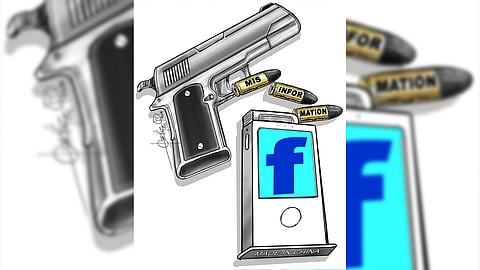
- NEWS
- the EDIT
- COMMENTARY
- BUSINESS
- LIFE
- SHOW
- ACTION
- GLOBAL GOALS
- SNAPS
- DYARYO TIRADA
- MORE

Defense Secretary Gilberto Teodoro Jr. and National Security Adviser Eduardo Año over the weekend harped on another troubling tactic being employed by China, which is to weaponize information to manipulate public perception and undermine the Philippines’ legitimate claims in the West Philippine Sea (WPS).
Beijing’s use of overt and covert means to assert its discredited territorial claims in the South China Sea, which overlaps the WPS thus the entanglement between China and the Philippines, has been met with widespread condemnation and skepticism from the international community.
This should be seen in the light of the 2016 Permanent Court of Arbitration ruling that declared China’s claims — anchored on its 10-dash-line fairy tale — to be baseless. Despite this ruling, China has continued its aggressive actions as it encroaches on the WPS, using lasers, water cannons, and dangerous maneuvers against Philippine vessels.
Now it appears that China has ratcheted up its use of another layer of its strategy — a disinformation campaign. Both Teodoro and Año described as fabricated China’s claim of a “new model” agreement between the Philippines and China regarding the management of the dispute over Ayungin Shoal in the WPS.
Maybe it’s no coincidence that this narrative of Beijing’s surfaced after the Philippines garnered international support at the meeting with the United States, Japan and Australia in Hawaii. China now seeks to sow discord, both domestically and internationally, by hinting falsely of a concession by the Philippines.
According to Teodoro, China’s embassy in Manila is engaged in a “devious machination” to promote the idea of a “new model” agreement between the two countries, despite there being no such agreement.
This tactic is clearly aimed at sowing confusion and division within the Philippine government and society, while furthering China’s own agenda in the region.
Further, Teodoro warned that the Chinese Embassy has created a chat group with select members of the Philippine media to control the flow of information and disseminate false narratives.
History is rife with examples of how misinformation and disinformation shaped conflicts. The Gleiwitz radio incident in 1939, where Nazi Germany staged a fake Polish attack, served as a pretext for their invasion of Poland, triggering World War II.
During the Cold War, both the United States and the Soviet Union engaged in extensive propaganda campaigns aimed at demonizing the other and winning the hearts and minds of people around the world. Similarly, during the lead-up to the Iraq War in 2003, false claims by Uncle Sam about weapons of mass destruction were used to justify military intervention.
China’s attempt to entice journalists through exclusive access and leading questions in exchange for favorable coverage is a blatant effort to control the narrative, and members of the media, a cornerstone of democracy, must resist such manipulation. Journalists have a duty to fact-check, present a balanced view, and hold all parties accountable.
The Philippines must counter China’s campaign, but not by stooping to the same level. Transparency, a commitment to international law, and robust partnerships with like-minded nations are crucial. The recent quadrilateral meeting with the US, Australia, and Japan demonstrates a strong united front against China’s bullying tactics. Building regional cooperation on maritime security and freedom of navigation is also essential.
It doesn’t stop there. The Philippines must invest in media literacy initiatives to empower its citizens to critically evaluate information. Educating the public on how to identify bias, verify sources, and recognize manipulation tactics is vital in the fight against disinformation. This holds much weight today, especially with artificial intelligence making it very easy to create deepfake videos and audio clips.
This fight between the Philippines and China is not just about territory, it’s about upholding international law, safeguarding freedom of navigation, and protecting the Philippines’ sovereign rights.
Filipinos must unite in the face of this challenge, wielding the power of truth and unwavering commitment to their nation.
